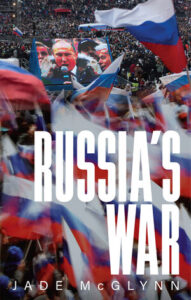 Vladimir Putin still maintains a strong grip on power in Russia in spite of the Kremlin’s handling of the war and its myriad consequences for Russian society, according to Bruno Kahl, the head of the German Intelligence Agency (BND).
Vladimir Putin still maintains a strong grip on power in Russia in spite of the Kremlin’s handling of the war and its myriad consequences for Russian society, according to Bruno Kahl, the head of the German Intelligence Agency (BND).
“We see no cracks in the Putin system,” Kahl told the Federal Academy for Security Policy, the German news outlet Deutsche Welle reported.
Hungary’s illiberal leader Viktor Orban has said “poor Ukrainians” are unlikely to emerge victorious against Russia, calling for Washington-Moscow negotiations to end the war.
“If you look at the reality, the numbers, the context, and the fact that NATO is not ready to send troops, it is obvious that there is no victory for the poor Ukrainians on the battlefield. This is my position,” Orban said.
If Russia suffered military defeat in Ukraine and Putin were removed as president, by the end of 2027 core features of Russia’s state system would be recognizable on the basis of what we see today, according to a new briefing paper from Chatham House, the London-based foreign policy think-tank. But even a managed leadership succession would unleash considerable uncertainty, leading to a broad spectrum of plausible outcomes across the political, economic and foreign policy domains.
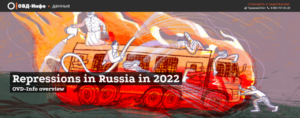
Credit: OVD-Info
Russia’s political system would remain essentially authoritarian, says analyst Duncan Allan. The guiding principles would be top-down stability and order, although the potential for elite divisions would be real. Political evolution would occur in the space between a limited easing of controls and an even more repressive model.
The analysis draws two main conclusions, he adds:
- First, although core features of Russia’s state system would be largely recognizable on the basis of what we see today, even a managed succession to a post-Putin leadership would unleash considerable uncertainty.
- Second, and consequently, we can conclude that there would be a broad spectrum of plausible outcomes across the political, economic and foreign policy domains.
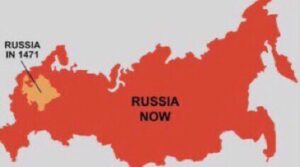 According to this scenario, a post-Putin leadership would almost certainly still define relations with the West in adversarial terms, Duncan asserts:
According to this scenario, a post-Putin leadership would almost certainly still define relations with the West in adversarial terms, Duncan asserts:
- There would be few convergent interests, even if a comparatively pragmatic and transactional leadership came to power. Potential problems would be qualitatively greater under a regime that was aggressively anti-Western and confronted core Western interests in Europe (for example, by means of hostile state activity, or undermining the sovereignty of Russia’s neighbours, first and foremost Ukraine).
- Western governments would face formidable obstacles trying to understand the inner workings and decision-making processes of a state system that might be even more opaque and inaccessible by 2027 than it is today. Even in the relatively more benign potential outcomes described in this paper, it is unlikely that a future Russian leadership, in which the security services would be prominent, would be well disposed towards Western governments.

Meduza
Putin spokesman Dmitry Peskov today told journalists that Russia shares the West’s view that the war in Ukraine should not become a frozen conflict, Meduza reports.
On May 18, Politico reported that U.S. officials are considering the possibility that the war in Ukraine could become a frozen conflict that lasts “many years,” noting that neither side in the war appears “inclined to admit defeat.”
We have a Putin problem because we have a Russia problem, says S. Frederick Starr, a distinguished fellow specializing in Eurasia at the American Foreign Policy Council. Two decades ago the mass of Russians made a deal with Vladimir Putin, he tells Jeffrey Gedmin, editor-in-chief of American Purpose:
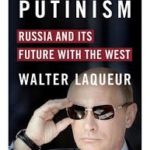 You give us a basic income, prospects for a better future, and a country we can take pride in, and we will give you a free hand. This is the same formula for autocracy that prevailed in Soviet times, and, before that, under the czars. The difference is that this time Russia’s leader—Putin—and his entourage have adopted a bizarre and dangerous ideology, “Eurasianism,” that empowers them to expand Russian power at will over the entire former territory of the USSR and even beyond. It is a grand and awful vision that puffs up ruler and ruled alike.
You give us a basic income, prospects for a better future, and a country we can take pride in, and we will give you a free hand. This is the same formula for autocracy that prevailed in Soviet times, and, before that, under the czars. The difference is that this time Russia’s leader—Putin—and his entourage have adopted a bizarre and dangerous ideology, “Eurasianism,” that empowers them to expand Russian power at will over the entire former territory of the USSR and even beyond. It is a grand and awful vision that puffs up ruler and ruled alike.
What Putin has done is to jettison centuries of Russia wanting to become part of Europe, to be closely allied with Europe, says analyst Angela Stent, the author of Putin’s World. And he’s gone completely the other direction now, just focusing on Asia, she told The FT’s Gideon Rachman:
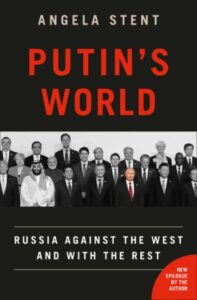 He’s closed the window to Europe, if you liked the Peter the Great opened. And until you have another generation that understands that that’s not in Russia’s interests and then is interested in renewing a relationship with Europe, that’s not going to happen. And I don’t see that happening for some time.
He’s closed the window to Europe, if you liked the Peter the Great opened. And until you have another generation that understands that that’s not in Russia’s interests and then is interested in renewing a relationship with Europe, that’s not going to happen. And I don’t see that happening for some time.
The powerlessness of Russian protests to stop the invasion of Ukraine was to be expected. What was unexpected was that Russian civil society didn’t collapse in the face of this assault, says Dan Storyev, managing editor at OVD-Info, a human rights monitoring group.
Thousands of Russians went on to the streets anyway. Exiles continued anti-war activism abroad. Every major independent Russian media organisation opposed the war. Human rights groups like ours continued resisting the Kremlin’s authoritarianism, but the authorities respond by throwing dissidents into jail for decades and hounding opposition activists like Vladimir Kara-Murza, he writes for The Financial Times.
Max Bergmann and Maria Snegovaya are joined by CSIS Senior Associate Michael Kimmage to discuss Ukraine’s impending counteroffensive, and what it could mean for global politics going forward.
Jade McGlynn’s Russia’s War (above) offers a tantalizing glimpse into the Russian public’s perception of the war in Ukraine, says Sergey Radchenko at Johns Hopkins University. “Do the Russians care? McGlynn provides the answer in a gripping narrative that brings out the nationalist fervor, the cautious skepticism and the mind-boggling indifference of those on whom Vladimir Putin counts for support.”
If Russia suffered a defeat in Ukraine and Vladimir Putin were removed as president, what would happen next?
Duncan Allan (@CHRussiaEurasia) analyses the potential outcomes of a power struggle in Moscow.https://t.co/TNsZ4u0w1P
— Chatham House (@ChathamHouse) May 24, 2023







